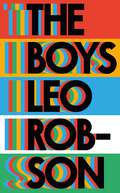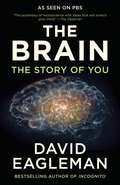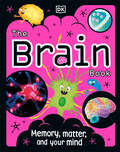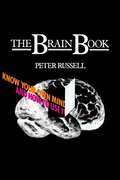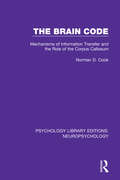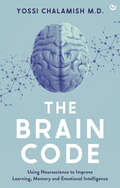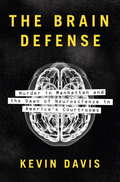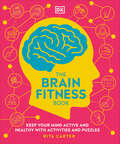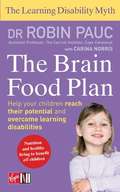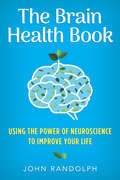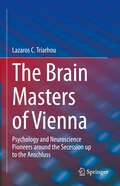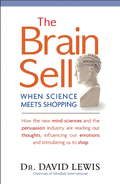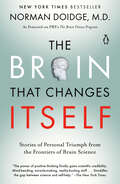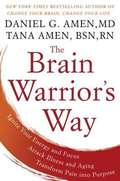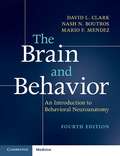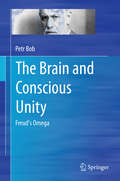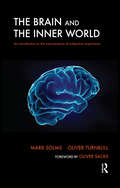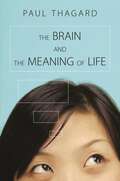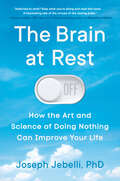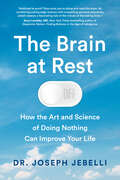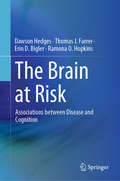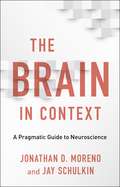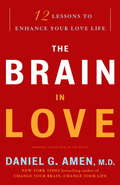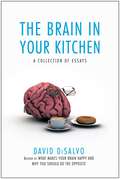- Table View
- List View
The Boys: a fresh and original debut about family, friendship and love
by Leo Robson'Summer days and new relationships are rendered with a grace that is lyrical at times but also ironic and comic, in a tone perfectly-pitched' Colm Tóibín'Compelling, vibrant, and dazzling' Brandon Taylor, Booker shortlisted author of Real Life'Very human, very real but also, fundamentally, extremely fun to read' Rebecca Watson, author of Little ScratchA New Statesman 25 best books to read in 2025.London, 2012. Johnny Voghel is stuck. He has a dead-end job at a small university and a wilting relationship and is grieving the death of his parents. When his half-brother Lawrence returns to the old family home from Chicago after a period of estrangement, Johnny decides to do everything he can to win back his affection. It's a quest he pursues with the help of Lawrence's childhood sweetheart and a pair of mysterious and seductive students adrift in the city during the height of Olympics fever.A generational saga that takes place over a fortnight, and a comedy about confusion and loss, The Boys follows Johnny as he revisits old grievances, cultivates new friendships - and tries to take control of his fate.
The Brain
by David EaglemanLocked in the silence and darkness of your skull, your brain fashions the rich narratives of your reality and your identity. Join renowned neuroscientist David Eagleman for a journey into the questions at the mysterious heart of our existence. What is reality? Who are "you"? How do you make decisions? Why does your brain need other people? How is technology poised to change what it means to be human? In the course of his investigations, Eagleman guides us through the world of extreme sports, criminal justice, facial expressions, genocide, brain surgery, gut feelings, robotics, and the search for immortality. Strap in for a whistle-stop tour into the inner cosmos. In the infinitely dense tangle of billions of brain cells and their trillions of connections, something emerges that you might not have expected to see in there: you. This is the story of how your life shapes your brain, and how your brain shapes your life. (A companion to the six-part PBS series. Color illustrations throughout.)From the Hardcover edition.
The Brain Book (The Science Book Series)
by Liam DrewA fun, fact-packed introduction to the brain and nervous system for young science enthusiastsThe brain - a wrinkly, spongy mass the size of a cauliflower that sits in our heads and controls everything we do! Discover what it&’s made of, how it works, and why we even need one in this fun, fact-packed introduction to the brain. Inside the pages of this STEM book for kids, budding young scientists will discover: • An age-appropriate introduction to the brain, what it is, what it does, how it works, and how it evolved • All about how scientists study the brain and nervous system • Introduces concepts like how we think, what consciousness is, and how the brains of other animals are different • Encourages young readers to develop an interest in STEAM fields - including biology, medicine, and science • Each page is filled with engaging photographs and artworks with easy to understand text Help them grow their brain while learning about it Filled with colorful illustrations and bite-sized chunks of information, this book covers all your questions on everything from the anatomy of the brain and nervous system, to how information is collected and sent around the body. It also explores questions about the brain that we don&’t know the answers to yet! This educational book for kids introduces complex topics in an age-appropriate way, from how our brains learn, and how processes like making memories, thinking, emotions, and sleep happen in the brain. Kids will also learn about the weird and wonderful world of different animal brains and how they impact their behavior. With entertaining illustrated characters, clear diagrams, and fascinating photographs, children will love learning about their minds and this all-important organ. Keep little ones learning with more in the seriesThe Brain Book is an ideal introduction to the brain and nervous system. Other titles in this educational book series include The Bacteria Book and The DNA Book - an excellent introduction to science for young readers and a great addition to any STEAM library.
The Brain Book: Know Your Own Mind and How to Use it
by Peter RussellFirst published in 1980. Routledge is an imprint of Taylor & Francis, an informa company.
The Brain Code: Mechanisms of Information Transfer and the Role of the Corpus Callosum (Psychology Library Editions: Neuropsychology #2)
by Norman D. CookOriginally published in 1986, this stimulating and unorthodox book integrates the major findings of hemispheric research with the larger questions of how the brain stores and transmits information – the ‘brain code’. Norman Cook emphasizes how the two cerebral hemispheres communicate information over the corpus callosum, the largest single nerve tract of the human brain. Excitatory mechanisms are involved in the duplication of information between the hemispheres; in contrast, inhibitory mechanisms are implicated in the production of hemispheric asymmetries and, crucially, in high-level cognitive phenomena such as the right hemisphere’s role in providing the ‘context’ within which left hemispheric verbal information is placed. These callosal mechanisms of information transfer are not only fundamental to the brain code; they are the simplest and most easily demonstrated ways in which the neocortex ‘talks to itself’. The Brain Code demonstrates how popular topics within psychology at the time, such as laterality, hemisphere differences and the psychology of left and right, are central to further progress in understanding the human brain. This book provides stimulating reading for students of psychology, artificial intelligence and neurophysiology, as well as anyone interested in the broader question of how the brain works.
The Brain Code: Using neuroscience to improve learning, memory and emotional intelligence
by Yossi ChalamishThis practical and accessible book empowers readers to access their brain&’s full potential, featuring cutting-edge neuroscience research presented for the first time.This book introduces the new and fascinating field of Clinical Neuroscience, which argues that the brain has the power to prevent and treat a variety of neurobiological disorders, from autism to attention deficit disorder. With ground-breaking neuroscience research presented in an accessible, easy-to-understand way The Brain Code teaches readers how to get the most from their brains, how to access their peak cognitive function. Each chapter will look at different functions of the brain:how can we regulate and control our emotions and thereby promote optimal thinking and behaviourimproving creative thinking through some simple tried-and-tested tricks efficient ways to use memory and thinking to improve our learning ability – a mandatory chapter for every student!steps to take to promote peaceful sleep recent brain research describing natural ways to deal with fears and anxietieslook behind the scenes at a mind in love and understand how the knowledge can be harnessed to manage more successful relationshipsDr Yossi Chalamish uses his expertise in neuroscience to provide contemporary research on how each brain function works, featuring case studies from his clinical experience that illustrate its function, and practical exercises and tools to improve your cognitive abilities in your everyday life.
The Brain Defense: Murder in Manhattan and the Dawn of Neuroscience in America's Courtrooms
by Kevin DavisCalled “the best kind of nonfiction” by Michael Connelly, this riveting new book combines true crime, brain science, and courtroom drama.In 1991, the police were called to East 72nd St. in Manhattan, where a woman's body had fallen from a twelfth-story window. The woman’s husband, Herbert Weinstein, soon confessed to having hit and strangled his wife after an argument, then dropping her body out of their apartment window to make it look like a suicide. The 65-year-old Weinstein, a quiet, unassuming retired advertising executive, had no criminal record, no history of violent behavior—not even a short temper. How, then, to explain this horrific act? Journalist Kevin Davis uses the perplexing story of the Weinstein murder to present a riveting, deeply researched exploration of the intersection of neuroscience and criminal justice. Shortly after Weinstein was arrested, an MRI revealed a cyst the size of an orange on his brain’s frontal lobe, the part of the brain that governs judgment and impulse control. Weinstein’s lawyer seized on that discovery, arguing that the cyst had impaired Weinstein’s judgment and that he should not be held criminally responsible for the murder. It was the first case in the United States in which a judge allowed a scan showing a defendant’s brain activity to be admitted as evidence to support a claim of innocence. The Weinstein case marked the dawn of a new era in America's courtrooms, raising complex and often troubling questions about how we define responsibility and free will, how we view the purpose of punishment, and how strongly we are willing to bring scientific evidence to bear on moral questions. Davis brings to light not only the intricacies of the Weinstein case but also the broader history linking brain injuries and aberrant behavior, from the bizarre stories of Phineas Gage and Charles Whitman, perpetrator of the 1966 Texas Tower massacre, to the role that brain damage may play in violence carried out by football players and troubled veterans of America’s twenty-first century wars. The Weinstein case opened the door for a novel defense that continues to transform the legal system: Criminal lawyers are increasingly turning to neuroscience and introducing the effects of brain injuries—whether caused by trauma or by tumors, cancer, or drug or alcohol abuse—and arguing that such damage should be considered in determining guilt or innocence, the death penalty or years behind bars. As he takes stock of the past, present and future of neuroscience in the courts, Davis offers a powerful account of its potential and its hazards. Thought-provoking and brilliantly crafted, The Brain Defense marries a murder mystery complete with colorful characters and courtroom drama with a sophisticated discussion of how our legal system has changed—and must continue to change—as we broaden our understanding of the human mind.
The Brain Fitness Book: Activities and puzzles to keep your mind active and healthy (DK Medical Care Guides)
by Rita CarterA balanced, scientific, and practical approach to monitoring and maintaining your brain's agility and mental healthPacked with expert advice, brain tests, and a range of exercises to stimulate your memory and mental agility, The Brain Fitness Book will equip you with everything you need to keep your brain working to its maximum potential.Inside the pages of this scientifically based brain fitness program, you&’ll find: • Clear, easy-to-understand visual explanations on how the brain works, how it recalls memories, and how and why it forgets • Practical advice on how to maintain and build a healthy brain • Step-by-step mental exercises and activities to help train your brain - from sudoku to learning a language Discover how to achieve a brain-healthy lifestyle! This empowering guide highlights the role of quality sleep, a healthy diet, and physical exercise to help you look after both your physical and mental well-being. It&’s the perfect book for anyone concerned about their mental health, in terms of memory loss or stress, anxiety, and the risk of depression.Packed with brain exercises, logic puzzles, and mind maps, this brain activity book offers a balanced, clear, colorful, and practical guide to keeping your brain fit. It also includes step-by-step introductions to activities varying from playing the guitar to beginning yoga and tai chi, all to aid you in keeping your brain fit, healthy, and young
The Brain Food Plan
by Robin Pauc Carina NorrisRobin Pauc argues that children diagnosed with "learning disorders" are in reality suffering from vitamin and nutrient deficiencies. Dr. Pauc presents a diet and other helpful advice to aid parents in raising healthy children.
The Brain Health Book: Using The Power Of Neuroscience To Improve Your Life
by John RandolphEasy-to-understand science-based strategies to maximize your brain’s potential. Concerns about memory and other thinking skills are common, particularly in middle age and beyond. Due to worries about declining brain health, some seek out dubious products or supplements purportedly designed to improve memory and other cognitive abilities. Fortunately, scientific research has uncovered a clear- cut set of evidence- based activities and lifestyle choices that are inexpensive or free and known to promote brain and cognitive functioning. John Randolph translates this science in an engaging and accessible way, including the brain- boosting effects of exercise, social activity, mental stimulation, task management strategies, nutrition, and positive self-care. Interwoven with lessons from neuroscience, positive psychology, social and clinical psychology, and habit formation research are powerful self- coaching exercises designed to help the reader incorporate lifestyle changes that promote brain health.
The Brain Masters of Vienna: Psychology and Neuroscience Pioneers around the Secession up to the Anschluss
by Lazaros C. TriarhouThe book comprises biographical notes, of about 1000 words each, with a portrait photo, of 90 influential figures of the famous prewar Viennese school of neuropsychiatry, appearing together for the first time in a single volume. The entries focus on the academic lives and scientific contributions of pioneers in the neurological sciences viewed from a modern perspective. These updated profiles are based on substantial new research. The book includes a wide range of people, some famous Nobel laureates, and others less well known, from the era when Vienna was the epicenter of brain research. Despite the tragic circumstances of two World Wars, these pioneers remained resilient, willing to help others with an admirable dignity against adversity that leaves an indelible lesson to the later generations. Some fell victim of the Holocaust. Others overcame the constraints of National Socialism and ultimately settled overseas to nurture their ambitions and pursue their intellectual goals as physicians, researchers, and teachers. The monograph is a useful source for scholars interested in the evolution of ideas in basic neuroscience, clinical neurology, and neuropsychiatry, and the investigators who effected them.
The Brain Sell
by David LewisIn a room sat a theoretical physicist, an engineer, a mathematician, a biochemist, and a neuropsychologist. Their task? To evaluate the effectiveness of a marketing campaign for a grooming product that retails for less than $15.00.The Brain Sell, praised as the new Hidden Persuaders, is the inside story of how our rapidly evolving understanding of the brain plays into the advertising, marketing, and retailing industry. With the emergence of Big Data mining, the "persuasion industry" is more prominent than ever. David Lewis, PhD, internationally renowned researcher, brings science to shopping-mapping the brain and the body to explore the sensitivities in our minds and discover how we select and buy. Gone are the days of traditional salesmanship-in the United Kingdom and United States alone, $313 billion is spent annually on subliminal messaging and measuring consumers' subconscious reactions to the color of a child's toy, the smell of a store's interior, or the font of the smallest letter on a soup can. Lewis repeatedly surprises with secrets from the advertising and marketing industries, revealing the scientific strategies used to evaluate and manipulate consumer response. An enlightening read for marketers and advertisers and an urgently important one for anyone who considers themselves a "smart shopper." The Brain Sell shows that even after the product is on the shelf and the commercial is over, the sales pitch goes on.David Lewis, PhD, a neuropsychologist, is founder and director at the independent research consultancy Mindlab International based at the University of Sussex. Additionally, he is a psychologist, an international lecturer, and acclaimed author, most recently of Impulse (Harvard University Press). Dubbed the "father of neuromarketing" for his pioneering studies of analyzing brain activity for research and commercial purposes, he currently specializes in noninvasive techniques for measuring human responses under real life conditions.
The Brain Sell: When Science Meets Shopping
by David LewisScience has made the leap from the lab to come to a store near you and the effects on us are phenomenal. Corporations in hyper-competition are now using the new mind sciences to analyze how and when we shop, and the hidden triggers that persuade us to consume. From bargains in the Big Apple to the bustling bazaars of Istanbul, from in-store to interactive and online to mobile, neuromarketing pioneer Dr. David Lewis goes behind the scenes of the persuasion industry to reveal the powerful tools and techniques, technologies and psychologies seeking to stimulate us all to buy more often without us consciously realizing it.
The Brain That Changes Itself: Stories of Personal Triumph from the Frontiers of Brain Science
by Norman Doidge M.D.&“Fascinating. Doidge&’s book is a remarkable and hopeful portrait of the endless adaptability of the human brain.&”—Oliver Sacks, MD, author of The Man Who Mistook His Wife for a HatWhat is neuroplasticity? Is it possible to change your brain? Norman Doidge&’s inspiring guide to the new brain science explains all of this and moreAn astonishing new science called neuroplasticity is overthrowing the centuries-old notion that the human brain is immutable, and proving that it is, in fact, possible to change your brain. Psychoanalyst, Norman Doidge, M.D., traveled the country to meet both the brilliant scientists championing neuroplasticity, its healing powers, and the people whose lives they&’ve transformed—people whose mental limitations, brain damage or brain trauma were seen as unalterable. We see a woman born with half a brain that rewired itself to work as a whole, blind people who learn to see, learning disorders cured, IQs raised, aging brains rejuvenated, stroke patients learning to speak, children with cerebral palsy learning to move with more grace, depression and anxiety disorders successfully treated, and lifelong character traits changed. Using these marvelous stories to probe mysteries of the body, emotion, love, sex, culture, and education, Dr. Doidge has written an immensely moving, inspiring book that will permanently alter the way we look at our brains, human nature, and human potential.
The Brain Warrior's Way: Ignite Your Energy and Focus, Attack Illness and Aging, Transform Pain into Purpose
by Daniel G. Amen Tana AmenNew York Times bestselling authors Dr. Daniel Amen and Tana Amen are ready to lead you to victory... When trying to live a healthy lifestyle, every day can feel like a battle. Forces are destroying our bodies and our minds. The standard American diet we consume is making us sick; we are constantly bombarded by a fear-mongering news media; and we're hypnotized by technical gadgets that keep us from our loved ones. Even our own genes can seem like they're out to get us. But you can win the war. You can live your life to the fullest, be your best, and feel your greatest, and the key to victory rests between your ears. Your brain runs your life. When it works right, your body works right, and your decisions tend to be thoughtful and goal directed. Bad choices, however, can lead to a myriad of problems in your body. Studies have shown that your habits turn on or off certain genes that make illness and early death more or less likely. But you can master your brain and body for the rest of your life with a scientifically-designed program: the Brain Warrior's Way. The Brain Warrior's Way is your arsenal to win the fight to live a better life. The Amens will guide you through the process, and give you the tools to take control. So if you're serious about your health, either out of desire or necessity, it's time to arm yourself and head into battle. Master your brain and body for the rest of your life. This is not a program to lose 10 pounds, even though you will do that--and lose much more if needed. You can also prevent Alzheimer's, reverse aging, and improve your: -Overall health -Focus -Memory -Energy -Work -Mood Stability -Flexibility -Inner Peace -Relationships The Amens have helped tens of thousands of clients over thirty years, and now they can help you. It is time to live a better life--right now!From the Hardcover edition.
The Brain and Behavior (4th Edition): An Introduction to Behavioral Neuroanatomy
by David L. Clark Nash N. Boutros Mario F. MendezNow in its fourth edition, The Brain and Behavior introduces the field of neurobiology of human behavior to a wide audience, from graduate students to professionals in the fields of psychology, psychiatry, and neurology. This comprehensive resource focuses on locating human behaviors to specific regions of the brain, aiming to make a complex topic visually accessible through the inclusion of clear and focused illustrations. This important new edition emphasises recent developments in our understanding of the human brain which have emerged from imaging studies. The text also features patient case histories with documented anatomical evidence, tying the science with actual clinical examples, making it the most accessible book for medical practitioners of all levels. The collaboration between a neuropsychiatrist, a behavioral neurologist, and a neuroanatomist has resulted in a book which synthesizes the complex and evolving information on the neurobiology of human behavior, and presents it in an eminently readable volume.<P><P> This new fourth edition has been completely revised and updated.<P> Highlights the basis of psychiatric disturbances which allows clinicians to explain to the patient the source of their symptoms.<P> Simplifies complex brain anatomy making it a more accessible read than complicated in-depth texts.<P>
The Brain and Conscious Unity
by Petr BobIn this provocative text, a noted neuroscientist reexamines Freud's posthumously published Project of Scientific Psychology in the light of modern neuroscience. This expanded "thermodynamics of the mind" model includes robust conceptions of the cellular and neural processes that accompany creation of consciousness and memory, their contributions to such conditions as depression, dissociative disorders, and schizophrenia, and implications for practice, from imaging to talk-based therapies to pharmacotherapy. Central to this construct is Freud's proposal of specific "omega" neurons as the most volatile carriers of consciousness between mind and brain, which is applied to current issues regarding complexity and executive functioning. In addition, the book is extensively referenced, allowing readers to investigate these and related phenomena in greater detail. Among the topics covered: Neural reductionism in Freud's "Project" and neuropsychoanalysis. Thermodynamics and brain self-organization. Conflicting information and the dissociated mind. The Cartesian model of the mind and the binding problem. Neuroendocrine and immune response to stress. The concept of omega neurons and modern chaos theory. Rigorous, challenging, and occasionally startling, The Brain and Conscious Unity is a milestone in the neuroscience and mind/brain literature to be read and discussed by psychiatrists, psychologists, and neuropsychologists.
The Brain and the Inner World: An Introduction to the Neuroscience of Subjective Experience
by Mark Solms Oliver TurnbullThis work is an eagerly awaited account of this momentous and ongoing revolution, elaborated for the general reader by two pioneers of the field. The book takes the nonspecialist reader on a guided tour through the exciting new discoveries, pointing out along the way how old psychodynamic concepts are being forged into a new scientific framework for understanding subjective experience – in health and disease.
The Brain and the Meaning of Life
by Paul ThagardHow brain science answers the most intriguing questions about the meaning of lifeWhy is life worth living? What makes actions right or wrong? What is reality and how do we know it? The Brain and the Meaning of Life draws on research in philosophy, psychology, and neuroscience to answer some of the most pressing questions about life's nature and value. Paul Thagard argues that evidence requires the abandonment of many traditional ideas about the soul, free will, and immortality, and shows how brain science matters for fundamental issues about reality, morality, and the meaning of life. The ongoing Brain Revolution reveals how love, work, and play provide good reasons for living.Defending the superiority of evidence-based reasoning over religious faith and philosophical thought experiments, Thagard argues that minds are brains and that reality is what science can discover. Brains come to know reality through a combination of perception and reasoning. Just as important, our brains evaluate aspects of reality through emotions that can produce both good and bad decisions. Our cognitive and emotional abilities allow us to understand reality, decide effectively, act morally, and pursue the vital needs of love, work, and play. Wisdom consists of knowing what matters, why it matters, and how to achieve it.The Brain and the Meaning of Life shows how brain science helps to answer questions about the nature of mind and reality, while alleviating anxiety about the difficulty of life in a vast universe. The book integrates decades of multidisciplinary research, but its clear explanations and humor make it accessible to the general reader.
The Brain at Rest: How the Art and Science of Doing Nothing Can Improve Your Life
by Joseph Jebelli PhDFrom Joseph Jebelli, PhD, neuroscientist and author of In Pursuit of Memory, a groundbreaking exploration of the science of doing nothing and its benefits for the brain and bodyWe are constantly told to make the most of our time, to work harder, to stop procrastinating. But what if all that advice was wrong, and letting the brain rest, and the mind wander, could improve our lives? In The Brain at Rest, Dr. Joseph Jebelli shows readers the way to happier, healthier, and more balanced lives in a deeply researched and entertaining guide to combat overwork and burnout.Through a blend of science, personal stories, and practical, actionable tips, Dr. Jebelli proves that the brain's "default network" turns itself on when we turn off the constant need to always do and achieve. By activating our default network through long walks, baths, and spending time in nature, we can all be more content, less stressed, and actually more productive.Perfect for anyone feeling overwhelmed, burnt out, or hungry to achieve their goals in a healthy, sustainable way, The Brain at Rest is the definitive, science-backed guide to achieving contentment, creativity, and success by letting your brain decompress.
The Brain at Rest: How the Art and Science of Doing Nothing Can Improve Your Life
by Joseph Jebelli PhDFrom Joseph Jebelli, PhD, neuroscientist and author of In Pursuit of Memory, a narrative exploration of the science of doing nothing and its benefits for the brain and body.We are constantly told to make the most of our time. Work harder, with more focus. Stop procrastinating. Optimize. To be happy, creative, and successful requires discipline. The most important thing is to be efficient with every precious hour.But what if all that advice was wrong, and letting the brain rest, and the mind wander, could improve our lives? Dr. Joseph Jebelli proves this surprising and fascinating point in The Brain at Rest, blending science and personal stories with practical tips about using the brain&’s &“default network,&” which turns itself on when we turn off the constant need to always do and achieve. By activating our default network through long walks, baths, and spending time in nature, we can all be more content, less stressed, and actually more productive.Perfect for anyone interested in science and creativity, or anyone feeling overwhelmed in their day-to-day lives, The Brain at Rest is a deeply researched and entertaining antidote to overwork and burnout, showing readers the way to happier, healthier, and more balanced lives.
The Brain at Risk: Associations between Disease and Cognition
by Erin D. Bigler Dawson Hedges Thomas J. Farrer Ramona O. HopkinsThis important book describes the effects of a range of medical, psychological, and neurological conditions on brain functioning, specifically cognition. After a brief introduction of brain anatomy and function focusing on neural systems and their complex role in cognition, this book covers common disorders across several medical specialties, as well as injuries that can damage a variety of neural networks. The authors review findings on associations between these conditions and cognitive domains such as executive function, memory, attention, and learning, and describe possible causal pathways between diseases and cognitive impairment. Later chapters describe potential strategies for prevention, improvement, and treatment. The book’s topics includeCognition in affective disordersCerebrovascular disease and cognitionCognitive sequelae of sepsisTraumatic brain injury and cognitionCognitive deficits associated with drug useObstructive sleep apnea and cognitionCognitive function in pulmonary diseaseThe Brain at Risk reflects the current interest in the links between body, mind, and brain, and will be of great value to researchers and practitioners interested in neuroscience, neuropsychology, and clinical research in the cognitive and behavioral consequences of brain injury and disease.
The Brain in Context: A Pragmatic Guide to Neuroscience
by Jay Schulkin Jonathan D. MorenoThe human brain is the most complex object in the known universe. The field of neuroscience has made remarkable strides in recent years in understanding aspects of the brain, yet we still struggle with seemingly fundamental questions about how the brain works. What lessons can we learn from neuroscience’s successes and failures? What kinds of questions can neuroscience answer, and what will remain out of reach?In The Brain in Context, the bioethicist Jonathan D. Moreno and the neuroscientist Jay Schulkin provide an accessible and thought-provoking account of the evolution of neuroscience and the neuroscience of evolution. They emphasize that the brain is not an isolated organ—it extends into every part of the body and every aspect of human life. Understanding the brain requires studying the environmental, biological, chemical, genetic, and social factors that continue to shape it. Moreno and Schulkin describe today’s transformative devices, theories, and methods, including technologies like fMRI and optogenetics as well as massive whole-brain activity maps and the attempt to create a digital simulation of the brain. They show how theorizing about the brain and experimenting with it often go hand in hand, and they raise cautions about unintended consequences of technological interventions. The Brain in Context is a stimulating and even-handed assessment of the scope and limits of what we know about how we think.
The Brain in Love: 12 Lessons to Enhance Your Love Life
by Daniel G. AmenYou hold the key to stronger relationships, deeper connections, and heightened intimacy.Everyone wants to know how to improve his or her love life, but so few of us understand the integral role the brain plays in attraction, keeping us excited about our partner, and helping us feel a strong connection. Based on Dr. Daniel Amen's cutting-edge neuroscience research, The Brain in Love shares twelve lessons that help you enhance your love life through understanding and improving brain function. Filled with practical suggestions and information on how to have lasting and more fulfilling relationships, The Brain in Love reveals:* How emotional and physical intimacy can help prevent heart disease, improve memory, stave off cancer, and boost your immune system* How the differences between men's and women's brains affect our perceptions and interest in sex * The science behind why breakups hurt so much, and what you can do to ease the pain* Surefire techniques to fix common problems-depression, PMS, ADD-that contribute to conflicts* How to make yourself unforgettable to your partnerThe Brain in Love explains everything there is to know about the brain in love and lust, guiding you to the emotional and physical intimacy you need.From the Trade Paperback edition.
The Brain in Your Kitchen: A Collection of Essays on How What We Buy, Eat, and Experience Affects Our Brains
by David DisalvoEvery day, we're faced with choices about what to eat, wear, and purchase. Blinded by a tsunami of information—some good, some bad, some intentionally misleading—often our brains are too overwhelmed to examine all the details. So how do we know we're making the best decisions for us? Author and science journalist David DiSalvo asks what's best for our brains instead. The Brain in Your Kitchen sifts through the good and bad information on the things we buy, the foods we eat, and the medicines we take. Using findings from cutting-edge science, DiSalvo divulges terrifically useful and little-known facts—each grounded in credible research—about everything from how gluten to cats affect your brain. Learn how we can trick our minds into helping us lose weight, what placebos are costing us big bucks with no results, and what caffeine is actually doing inside your head to give you that extra pep. Disalvo cuts through frantic media sensation and consumer marketplace babble and gives you the knowledge to distinguish hyperbole from truth so you're ready next time you sit down for dinner.
